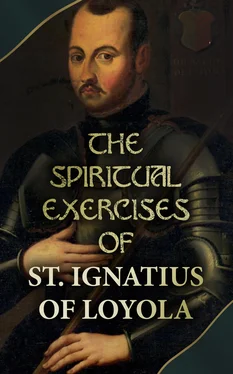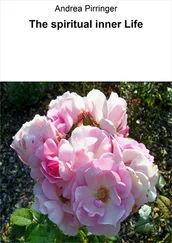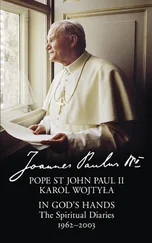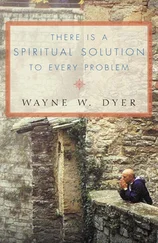So, too, should he who is giving the Exercises observe that he who is receiving them has little ability or little natural capacity, from whom not much fruit is to be hoped, it is more expedient to give him some of these easy Exercises, until he confesses his sins. Then let him be given some Examens of Conscience and some method for going to Confession oftener than was his custom, in order to preserve what he has gained, but let him not go on into the matter of the Election, or into any other Exercises that are outside the First Week, especially when more progress can be made in other persons and there is not time for every thing.
Nineteenth Annotation. The nineteenth: A person of education or ability who is taken up with public affairs or suitable business, may take an hour and a half daily to exercise himself.
Let the end for which man is created be explained to him, and he can also be given for the space of a half-hour the Particular Examen and then the General and the way to confess and to receive the Blessed Sacrament. Let him, during three days every morning, for the space of an hour, make the meditation on the First, Second and Third Sins, pp. 37, 38; then, three other days at the same hour, the meditation on the statement of Sins, p. 40; then, for three other days at the same hour, on the punishments corresponding to Sins, p. 45. Let him be given in all three meditations the ten Additions, p. 47.
For the mysteries of Christ our Lord, let the same course be kept, as is explained below and in full in the Exercises themselves.
Twentieth Annotation. The twentieth: To him who is more disengaged, and who desires to get all the profit he can, let all the Spiritual Exercises be given in the order in which they follow.
In these he will, ordinarily, more benefit himself, the more he separates himself from all friends and acquaintances and from all earthly care, as by changing from the house where he was dwelling, and taking another house or room to live in, in as much privacy as he can, so that it be in his power to go each day to Mass and to Vespers, without fear that his acquaintances will put obstacles in his way.
From this isolation three chief benefits, among many others, follow.
The first is that a man, by separating himself from many friends and acquaintances, and likewise from many not well-ordered affairs, to serve and praise God our Lord, merits no little in the sight of His Divine Majesty.
The second is, that being thus isolated, and not having his understanding divided on many things, but concentrating his care on one only, namely, on serving his Creator and benefiting his own soul, he uses with greater freedom his natural powers, in seeking with diligence what he so much desires.
The third: the more our soul finds itself alone and isolated, the more apt it makes itself to approach and to reach its Creator and Lord, and the more it so approaches Him, the more it disposes itself to receive graces and gifts from His Divine and Sovereign Goodness.
TO CONQUER ONESELF AND REGULATE ONE’S LIFE WITHOUT DETERMINING ONESELF THROUGH1 ANY TENDENCY THAT IS DISORDERED
Table of Contents
In order that both he who is giving the Spiritual Exercises, and he who is receiving them, may more help and benefit themselves, let it be presupposed that every good Christian is to be more ready to save his neighbor’s proposition than to condemn it. If he cannot save it, let him inquire how he means it; and if he means it badly, let him correct him with charity. If that is not enough, let him seek all the suitable means to bring him to mean it well, and save himself.
Table of Contents
Table of Contents
Man is created to praise, reverence, and serve God our Lord, and by this means to save his soul.
And the other things on the face of the earth are created for man and that they may help him in prosecuting the end for which he is created.
From this it follows that man is to use them as much as they help him on to his end, and ought to rid himself of them so far as they hinder him as to it.
For this it is necessary to make ourselves indifferent to all created things in all that is allowed to the choice of our free will and is not prohibited to it; so that, on our part, we want not health rather than sickness, riches rather than poverty, honor rather than dishonor, long rather than short life, and so in all the rest; desiring and choosing only what is most conducive for us to the end for which we are created.
PARTICULAR AND DAILY EXAMEN
Table of Contents
It contains in it three times, and two to examine oneself.
The first time is in the morning, immediately on rising, when one ought to propose to guard himself with diligence against that particular sin or defect which he wants to correct and amend.
The second time is after dinner, when one is to ask of God our Lord what one wants, namely, grace to remember how many times he has fallen into that particular sin or defect, and to amend himself in the future. Then let him make the first Examen, asking account of his soul of that particular thing proposed, which he wants to correct and amend. Let him go over hour by hour, or period by period, commencing at the hour he rose, and continuing up to the hour and instant of the present examen, and let him make in the first line of the G_____ as many dots as were the times he has fallen into that particular sin or defect. Then let him resolve anew to amend himself up to the second Examen which he will make.
The third time: After supper, the second Examen will be made, in the same way, hour by hour, commencing at the first Examen and continuing up to the present (second) one, and let him make in the second line of the same G_____ as many dots as were the times he has fallen into that particular sin or defect.
FOUR ADDITIONS
FOLLOW TO RID ONESELF SOONER OF THAT PARTICULAR SIN OR DEFECT
First Addition. The first Addition is that each time one falls into that particular sin or defect, let him put his hand on his breast, grieving for having fallen: which can be done even in the presence of many, without their perceiving what he is doing.
Second Addition. The second: As the first line of the G_____ means the first Examen, and the second line the second Examen, let him look at night if there is amendment from the first line to the second, that is, from the first Examen to the second.
Third Addition. The third: To compare the second day with the first; that is, the two Examens of the present day with the other two Examens of the previous day, and see if he has amended himself from one day to the other.
Fourth Addition. The fourth Addition: To compare one week with another, and see if he has amended himself in the present week over the week past.
Note. It is to be noted that the first (large) G_____ which follows means the Sunday: the second (smaller), the Monday: the third, the Tuesday, and so on.
GENERAL EXAMEN OF CONSCIENCE
Table of Contents
TO PURIFY ONESELF AND TO MAKE ONE’S CONFESSION BETTER
I presuppose that there are three kinds of thoughts in me: that is, one my own, which springs from my mere liberty and will; and two others, which come from without, one from the good spirit, and the other from the bad.
THOUGHT
There are two ways of meriting in the bad thought which comes from without, namely:
First Way. A thought of committing a mortal sin, which thought I resist immediately and it remains conquered.
Second Way. The second way of meriting is: When that same bad thought comes to me and I resist it, and it returns to me again and again, and I always resist, until it is conquered.
Читать дальше











